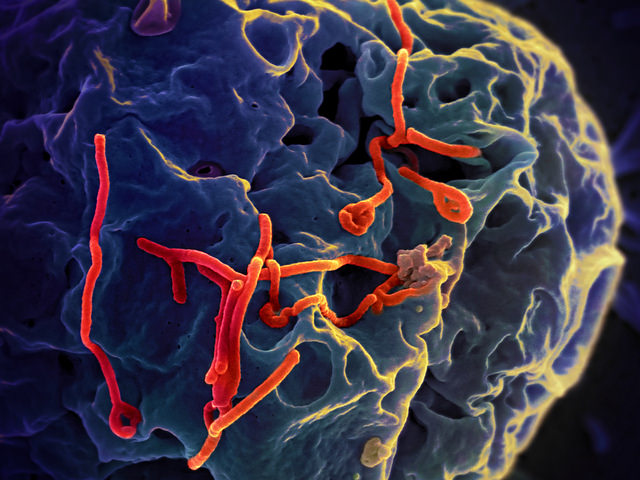Health
Risk of Ebola’s spread from Congo now ‘very high,’ WHO says

“Some patients have also left health facilities to seek alternative care.” (File Photo by NIAID/Flickr, CC BY 2.0)
JOHANNESBURG — The risk of the deadly Ebola virus spreading from Congo is now “very high” after two confirmed cases were discovered near the Uganda border, the World Health Organization says.
The outbreak of the hemorrhagic fever in northeastern Congo is now larger than the previous one in the northwest and more complicated to contain because of a dense, highly mobile population and the threat from rebel groups active in the region.
A deadly attack in Beni, the heart of Ebola containment efforts, forced work to be suspended for two days earlier in the week.
That led the WHO’s emergencies chief, Peter Salama, to warn that insecurity, public defiance about vaccinations and politicians fanning fears ahead of elections in December could create a “perfect storm” leading the outbreak to spread.
As of Friday there were 124 confirmed Ebola cases including 71 deaths. The previous outbreak in Congo’s Equateur province, declared over just a week before the current one was announced, had 54 confirmed cases including 33 deaths.
This is the first time an Ebola outbreak has occurred in this part of Congo, affecting the provinces of North Kivu and Ituri where more than a million people are said to be displaced by unrest.
Health workers have had to combat various rumours and fears about the disease, which spreads via the body fluids of those infected, including the dead.
“Some patients have also left health facilities to seek alternative care,” WHO said in a statement on Thursday. One infected person moved into a “red zone” where security is poor and carrying out Ebola response efforts is “extremely difficult, if not impossible.”
The virus moved near the Uganda border when a woman who had participated in the burials of Ebola victims refused a vaccination in Beni and then disappeared, local officials have said. She died on Sept. 20 at a hospital in Tshomia, on Lake Albert.
The second confirmed Ebola case in Tshomia was the woman’s partner, WHO said.
“While substantial progress has been made, the situation is precarious,” the U.N. health agency said of overall containment efforts. It continues to recommend against any travel restrictions.
Uganda has said it is preparing to begin vaccinations as needed. Congo’s health ministry says more than 12,000 people have been vaccinated so far.

